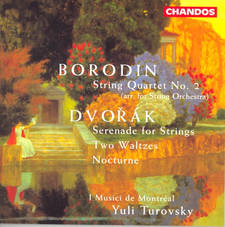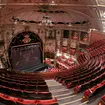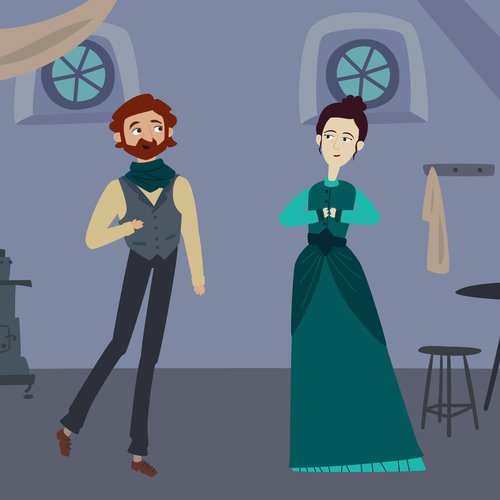English National Opera give ‘defiant’ curtain call as opera stars scorn funding cut
8 November 2022, 17:17 | Updated: 8 November 2022, 17:21
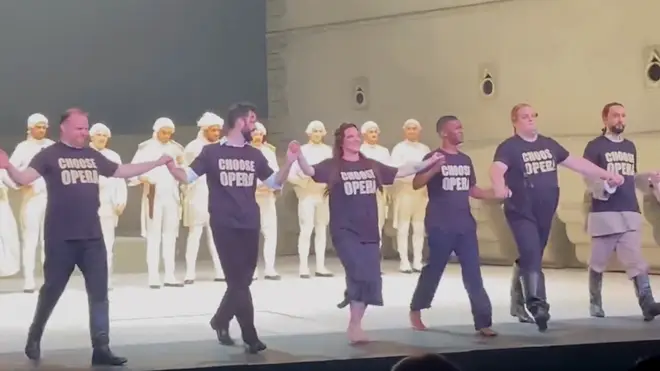
The main cast of ENO’s ‘Tosca’ appeared on stage at the end of the performance wearing t-shirts that read ‘Choose Opera’ in response to the Arts Council England funding decision from earlier that day.
Listen to this article
Last Friday (4 November) marked the last night of Puccini’s Tosca by the English National Opera – the opening production to the company’s 2022/23 season.
Whilst a notable occasion in its own right, the performance had a particularly poignant atmosphere as earlier that same day, Arts Council England (ACE) had announced that the opera company had been removed from their National Portfolio for 2023-2026.
Previously, the ENO had received £12.6 million a year from the arts funding body, and in a shock move, this round were instead allotted £17 million for the next three years to “develop a new business model” and move their workings up north, perhaps to Manchester.
In a blog post on ACE’s website, chief executive Darren Henley said the decision to reshuffle the funding was “all about delivering the very best in creativity and culture to as many people in as many places as possible”.
Many opera stars and regular audience members have since protested the decision across social media.
But an onstage response from within the organisation at the London Coliseum came last Friday during the curtain call of the final Tosca performance. After the chorus had given their bows, the singers were followed on stage by the principal soloists, who had all changed out of their costumes and into the opera company’s new merchandising drive, the ‘Choose Opera’ collection t-shirts.
Irish soprano, Sinéad Campbell-Wallace, who played the titular role, pointed to the words ‘Choose Opera’ as she bowed, then joined hands with her fellow cast members. The act was met with cheers, and audience members captured the moment before posting a flood of videos of the curtain call to social media.
Read more: Leading UK opera companies have funding slashed in Arts Council announcement
#ENO ‘s Tosca was so poignant on the very day the company’s general funding was cut to zero by the arts council. The singers wore their “Choose Opera” t-shirts & the audience wept. Sinead Wallace was truly intoxicating (in-Tosca-acting?) A sad day for the arts in Broken Britain. pic.twitter.com/oEl4OagTvD
— Kathy Lette (@KathyLette) November 5, 2022
Arts Council England’s decision has also sparked a reactionary petition, started by the legendary Welsh bass-baritone, Sir Bryn Terfel. The petition asks the government to “radically rethink removing the English National Opera as an Arts Council England National Portfolio Organisation”.
In the petition, Terfel writes: “The careers of singers, musicians, technical staff, creatives and other skilled workers, both permanent and freelance will be at risk. Hundreds of thousands of audiences in London and nationwide, on broadcast and digital will be without opera.
“Fund the ENO to continue their vital contribution to London’s global cultural status as well as supporting their levelling up agenda nationwide and their groundbreaking ENO Breathe NHS programme for long covid sufferers. ENO is Opera for Everyone!”
Read more: English National Opera releases tickets for 2022-2023 season, featuring nine fantastic operas
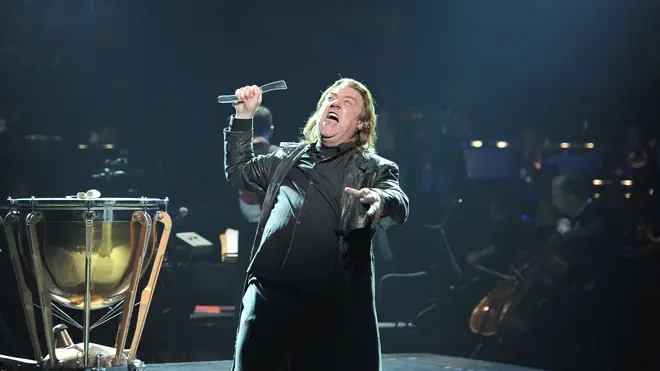
In the ACE’s blog post, Henley said: “The organisations in this portfolio are from every part of our country. This investment programme is fairer in its distribution, richer in its variety, and more widespread in its reach than ever before.”
Acknowledging the inevitable response, he added: “I know this whole process is tough on everyone involved. I know too that today will be hard for those organisations who had hoped for a different decision.”
He added that there will be a chance for organisations whose funding was reduced this time to apply for help from a ‘Transition Programme’ and new ‘Transform’ programme.
NEW: We’re investing in 990 organisations for the next three years so that more people in more places can enjoy creativity and culture wherever they are. #LetsCreate https://t.co/jeJYNDJ1NS
— Arts Council England (@ace_national) November 4, 2022
🗞️ Get the headlines… pic.twitter.com/nyi6DaTrQs
In their statement announcing a new chapter on Friday, the ENO announced that the Arts Council funding will allow the opera company “to increase [their] national presence by creating a new base out of London, potentially in Manchester.
“We plan to continue to manage the London Coliseum, using it to present a range of opera and dance whilst maximising it as a commercial asset.”
It is unclear however, whether the company would be able to use the Coliseum in this way. On Twitter, the former fundraising director for the ENO tweeted in response to the commercial suggestion, “I was fundraising director for ENO [when the] government purchased [the Coliseum]. A donor gave £1m the next day to start the campaign which raised millions to restore the Coliseum as ENO’s home.
“Commercial use is a betrayal of donors and a denial of public benefit.”
A new chapter for the ENO. Read the full statement here: https://t.co/Me3ro4Sg2a pic.twitter.com/gNssWz1Uuf
— English National Opera (@E_N_O) November 4, 2022
Multiple commentators have noted that if ENO moves to the north there could be a ‘turf war’ between the historically London-based opera company, and Opera North, who present regular seasons in Manchester among other northern cities.
Industry voices from across classical music have rallied to argue that London is the only possible home for the English National Opera. In a letter to The Times, Sue Spence – Director at the artist management agency, Askonas Holt, wrote, “Sir, as an agent for opera singers, I read with sadness and frustration of the dramatic cuts by Arts Council England, particularly to English National Opera.
“With ENO offering free tickets to under-21s, I have rarely seen such young and diverse audiences in any other venue. ENO has been crucial in establishing the careers of many of our British opera singers over several generations. That few of them are from London is testament to ENO cultivating talent from throughout the UK.
“The less we invest in the arts, the less important they will be for future generations.”
Read more: Arts Council England reveals shocking barriers to young people accessing classical music
CHOOSE OPERA #LoveENO
Posted by English National Opera on Monday, November 7, 2022
Dame Sarah Connolly also voiced her concern over moving the opera company. Over the weekend, she wrote on Twitter: “I NEED to say that without ENO, I would not be where I am today. The high standards and involvement of artists from UK and America have given massively important opportunities to musicians of all ages from whom I learned my craft.
“The loyal audience at plays in inestimable part of that development. Their support has meant everything to us including volunteers who help the company along. We must, as a country pull together and convince [Arts Council England] that London IS ENO’s home & always has been.”
ABO chief executive, Mark Pemberton, said in a Facebook status: “It is clear that the major casualty of this funding announcement has been opera. Even including the transition funding for ENO, the annual investment has decreased from £58.7 million to £47 million.
“Unlike orchestras, there has not been a single voice or statistical evidence to argue the case for the value of opera companies as a collective, and perhaps this is at the root of the problem the sector faces now.”
Read more: The UK’s best cheap orchestra and opera tickets for young audiences
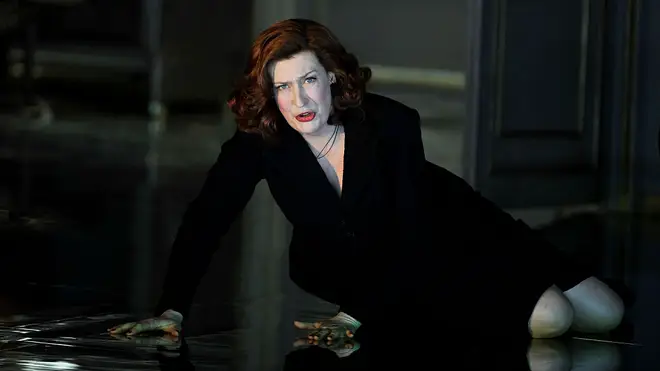
Scottish operatic tenor, Nicky Spence also shared on Twitter: “Making opera is hard work at the best of times and every department at ENO are more than the sum of their parts.
“The irreparable damage done to the cultural fabric of the UK in these recent arts cuts beggars belief. My heart breaks for all of the individuals who make opera happen.”
While the ENO published a statement regarding their new chapter on Friday, they have since shared Sir Bryn Terfel’s reactionary petition on their own social media, suggesting they won’t be taking the funding cut without a fight.
At a press conference announcing the funding last Friday, Nicholas Serota, the chair of Arts Council England made it clear that the Secretary of State instructed the organisation to “take money out of London”, leading to cuts of £50m worth of cuts to London’s arts funding.
In a statement, Mayor of London, Sadiq Khan responded to the arts cut citing the cost of living crisis and saying, “the announcement of £50 million of [government] cuts to our arts funding could not have come at a worse time.”
